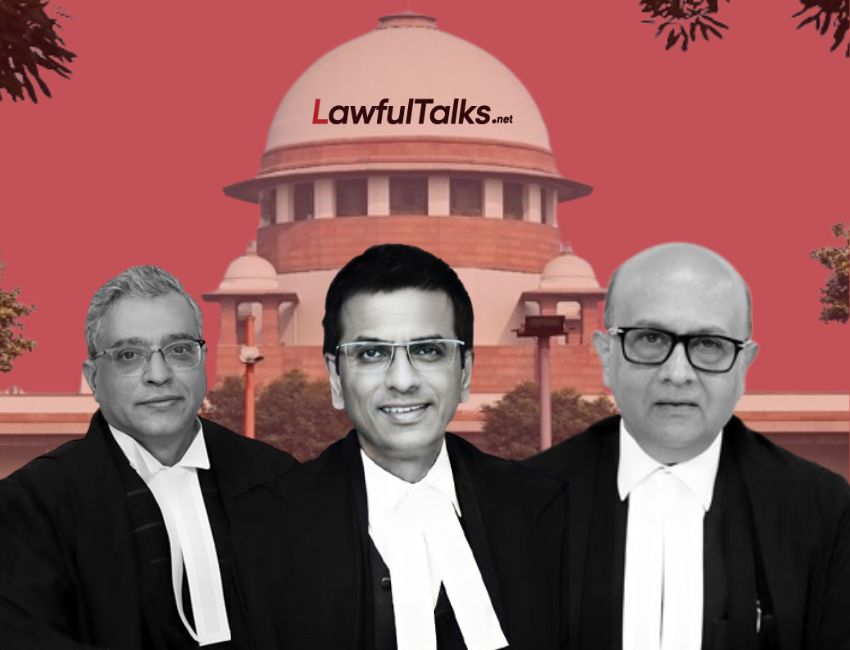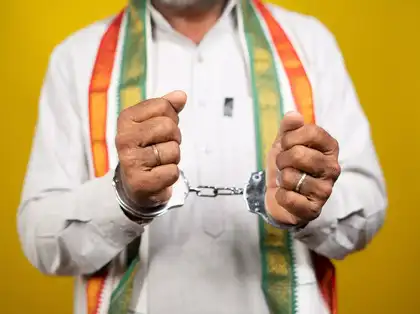Allahabad HC Sets Aside Afzal Ansari's Conviction, Allows Him to Continue as MP

The Hon’ble Supreme Court on 09/11/2023 directed - 1] Expeditious Disposal of Criminal Cases registered against elected MPs and MLAs; 2] to Exercise power under Art.227 and register a suo-motu case with title, “In Re: Designated Courts for MPs and MLAs” to monitor early disposal of subject cases and be heard by the Special Bench constituted.

The Hon’ble Supreme Court of India comprising of Hon’ble Chief Justice of India Dr. D.Y. Chandrachud, Hon’ble Justice Shri P.S. Narsimha and Hon’ble Justice Shri Manoj Misra vide Order and Judgement dated 09/11/2023 in Ashwini Kumar Upadhyay v. Union of India laid down guidelines and issued directions to all the High Courts to exercise power under Art. 227 of the Constitution and Designated Courts conducting trials of criminal cases against elected MPs and MLAs.
The Hon’ble Court was hearing a Public Interest Litigation under Art.32 of the Constitution of India seeking prayers relating to Expeditious disposal of Criminal Cases against MPs and MLAs and challenging constitutional validity of s.8 of Representation of People Act, 1951
Having considered the matter in detail, the Hon’ble Court directed as follows -
- The Chief Justices of the High Courts shall register a suo motu case with the title, "In Re: Designated Courts for MPs/MLAs" to monitor early disposal of criminal cases pending against the Members of Parliament and Legislative Assemblies. The suo motu case may be heard by the Special Bench presided by the Chief Justice or a Bench assigned by them.
- The Special Bench hearing the suo motu case may list the matter at regular intervals as is felt necessary. The High Court may issue such orders and/or directions as are necessary for expeditious and effective disposal of the subject cases. The Special Bench may consider calling upon the Advocate General or the Public Prosecutor to assist the Court.
- The High Court may require the Principal District and Sessions Judge to bear the responsibility of allocating the subject cases to such court or courts as is considered appropriate and effective. The High Court may call upon the Principal District and Sessions Judge to send reports at such intervals as it considers expedient.
- The Designated arts shall give priority first to criminal cases against MPs & MLAs punishable with death or life imprisonment then to cases punishable with imprisonment for 5 years or more, and then hear other cases.
- The trial courts should not adjourn the cases except for rare and compelling reasons.
- The Chief Justices may list cases in which orders of stay of trial have been passed before the Special Bench to ensure that appropriate orders, including vacation of stay orders are passed to ensure commencement and conclusion of trial.
- The Principal District and Sessions Judge shall ensure sufficient infrastructure facility for the Designated Courts and also enable it to adopt such technology as is expedient for effective and efficient functioning.
- The High Courts shall create an independent tab on their website. providing district-wise information about the details of the year of filing, number of subject cases pending and stage of proceedings. While monitoring the subject cases, the Special Bench may pass such orders or give such additional directions as are necessary for early disposal of the subject cases.

A comprehensive picture of the pending subject cases in various courts spread across the States and Union Territories was presented before the Court showing that there are as many as 5175 subject cases pending as of November 2022. Of these, cases that are pending for more than 5 years are as many as 2116, which figure is more than 40% of such pendency.
The Hon’ble Court observed that the pendency of cases revealed a considerable asymmetric disposition between the States and even between districts within a State, on factors that had a bearing on early disposal. This was evident from the stark difference in the actual number of pending cases between States and even districts within States. There were also variations in the availability of Judges to decide the cases, the case load per Judge, the speed at which the cases were decided, the state of physical and technological infrastructure, availability of prosecutors, etc.
The Hon’ble Court also noted that many factors affect the early disposal of cases, and these factors differ between States, making it hard to create uniform guidelines for trial courts across the country. The High Courts, which have reviewed affidavits and understand local conditions, are better suited to develop and apply suitable methods for monitoring and speeding up case disposal in their jurisdictions, as they have supervisory powers under Article 227.
The matter would now be listed for hearing on the other issue relating to constitutional validity of s.8 of the Representation of People Act, 1951.
Shri. Vijay Hansaria was the appointed Amicus Curiae for the matter.
Case Details: Ashwini Upadhyay v. Union of India, (2024) 1 SCC 185
Leave a Comment

Sonam Pandey
Law Student
Latest Posts
Categories
- International News 19 Posts
- Supreme Court 326 Posts
- High Courts 339 Posts







































































































































































































































































































































































































































































































































































































































































































